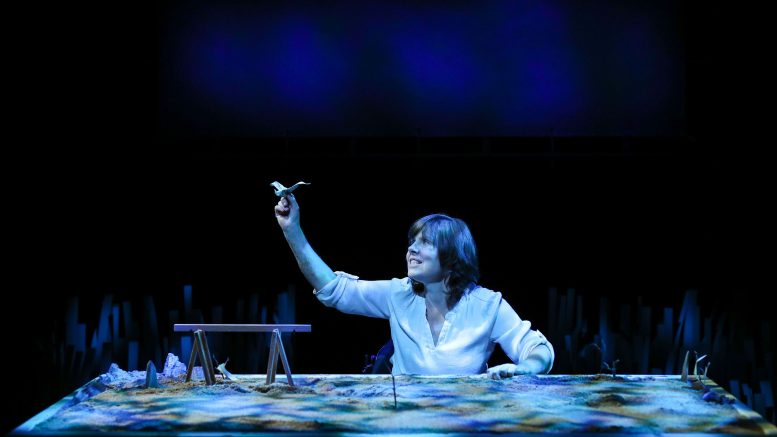This winter, Shakespeare in the Ruins (SIR) presents a remounted production of Shakespeare’s Will, written by Winnipeg-born playwright and two-time Governor General’s Award winner, Vern Thiessen. The play’s original run was in early 2020 during ShakespeareFest, the final iteration the Royal Manitoba Theatre Centre’s Master Playwright Festival. It was filmed for the screen on the mainstage at Prairie Theatre Exchange with video direction by local filmmaker Sam Vint. Uniquely, tickets to the show are “pay what you choose,” with price options ranging as low as $1 and as high as $10 before processing fees.
The one-woman show focuses the oft-forgotten wife of William Shakespeare. Upon receiving his last will and testament from his terse sister Joan, Anne Hathaway — no, not that one — reflects on the lives they built over the years, both together and apart.
SIR’s artistic director Rodrigo Beilfuss revealed that he was enchanted by the performance the first time he saw it in its original run.
“I found myself deeply moved by the tenderness, the love and the sensuality of the production,” he said in a press release. “I knew I had to bring this show back to life through Shakespeare in the Ruins. I needed more people to see this production and to feel the magic that I felt.”
Told through what is known as “object theatre,” Hathaway — portrayed by Winnipeg actor Debbie Patterson — uses numerous props, such as twigs and stones unearthed from a wide, elevated sandbox, to illustrate the narrative. The symbolism is obvious — the tiny twig that represents Hathaway is dwarfed by the heftier piece driftwood that represents her husband. Under the excellent direction of Eric Blais, these objects come alive as she tells the story of “not a mother, but a woman.”
“By focusing on Anne Hathaway, the play demystifies and de-centres Shakespeare from his own story, and we begin to understand the truth and the real cost of [achieving] immortality,” said Beilfuss. “The play is a deeply poetic and often hilarious meditation on love and loss, peppered with historical facts and incredible imagination.”
Imagination that wasn’t difficult to muster thanks to the superb camerawork, which emphasized and framed the sea of sand and the props it contained as though they were human actors. A standout moment that occurred later in the play was when Patterson created a likeness of Hathaway’s husband using nothing but sand. The resemblance was truly uncanny.
Thiessen’s script is dynamic and dreamlike, full of tight, artful prose and rife with imagery of the ocean — so much so that it almost becomes another character in the story. Patterson’s delivery of Thiessen’s words is rich and robust.
There is subtle, sharp wit in Hathaway bringing Shakespeare down from his exalted place, delicious irony in describing him as “a man of few words” and proclaiming that “the sea was a far better lover than [him]” — a phrase that takes on a very dark, troubling new meaning at the play’s end.
The only detractor of the performance was the music during the scene changes. Though it was pleasing to the ear, it seemed to have been added during the post-production of the recording and the volume drowned out some of Patterson’s accompanying lyrics.
Equal parts charming and heartbreaking, Shakespeare’s Will is 90 minutes of pure theatre magic that gives a voice to one of history’s more enigmatic figures.
Shakespeare’s Will runs digitally until Dec. 12. To learn more and for ticketing information, please visit shakespeareintheruins.com.


